Sahidul Islam
EVE: Environmental Adaptive Neural Network Models for Low-power Energy Harvesting System
Jul 14, 2022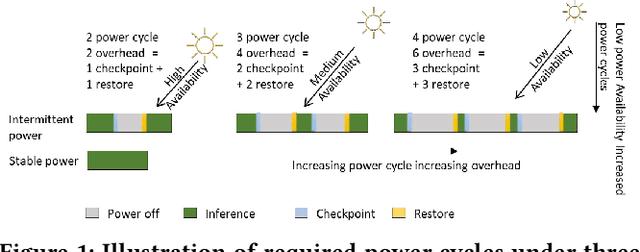


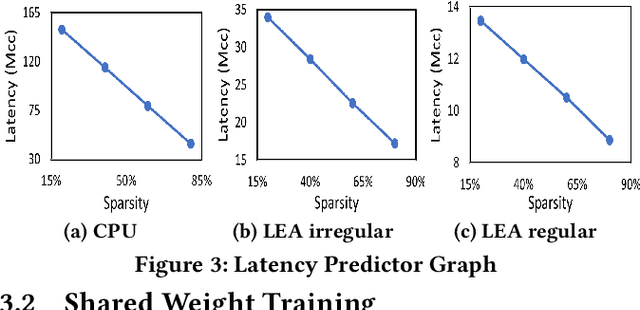
Abstract:IoT devices are increasingly being implemented with neural network models to enable smart applications. Energy harvesting (EH) technology that harvests energy from ambient environment is a promising alternative to batteries for powering those devices due to the low maintenance cost and wide availability of the energy sources. However, the power provided by the energy harvester is low and has an intrinsic drawback of instability since it varies with the ambient environment. This paper proposes EVE, an automated machine learning (autoML) co-exploration framework to search for desired multi-models with shared weights for energy harvesting IoT devices. Those shared models incur significantly reduced memory footprint with different levels of model sparsity, latency, and accuracy to adapt to the environmental changes. An efficient on-device implementation architecture is further developed to efficiently execute each model on device. A run-time model extraction algorithm is proposed that retrieves individual model with negligible overhead when a specific model mode is triggered. Experimental results show that the neural networks models generated by EVE is on average 2.5X times faster than the baseline models without pruning and shared weights.
Enabling Super-Fast Deep Learning on Tiny Energy-Harvesting IoT Devices
Nov 28, 2021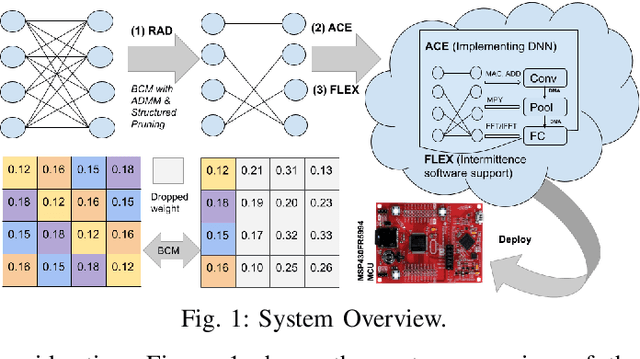
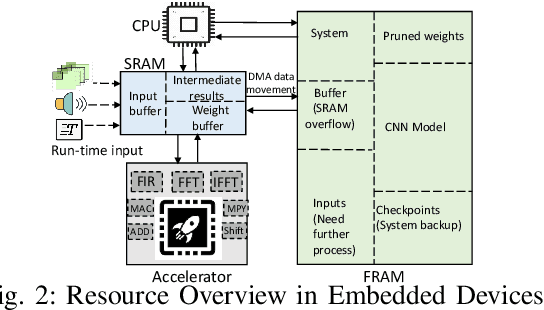

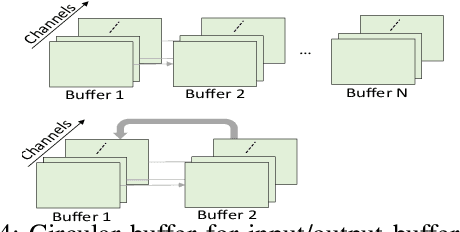
Abstract:Energy harvesting (EH) IoT devices that operate intermittently without batteries, coupled with advances in deep neural networks (DNNs), have opened up new opportunities for enabling sustainable smart applications. Nevertheless, implementing those computation and memory-intensive intelligent algorithms on EH devices is extremely difficult due to the challenges of limited resources and intermittent power supply that causes frequent failures. To address those challenges, this paper proposes a methodology that enables super-fast deep learning with low-energy accelerators for tiny energy harvesting devices. We first propose RAD, a resource-aware structured DNN training framework, which employs block circulant matrix with ADMM to achieve high compression and model quantization for leveraging the advantage of various vector operation accelerators. A DNN implementation method, ACE, is then proposed that employs low-energy accelerators to profit maximum performance with minor energy consumption. Finally, we further design FLEX, the system support for intermittent computation in energy harvesting situations. Experimental results from three different DNN models demonstrate that RAD, ACE, and FLEX can enable super-fast and correct inference on energy harvesting devices with up to 4.26X runtime reduction, up to 7.7X energy reduction with higher accuracy over the state-of-the-art.
Binary Complex Neural Network Acceleration on FPGA
Aug 10, 2021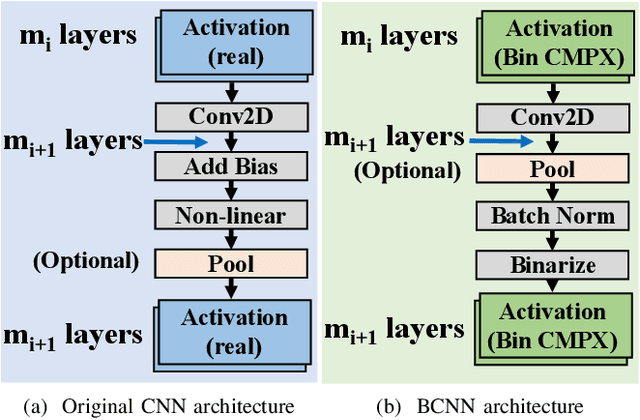
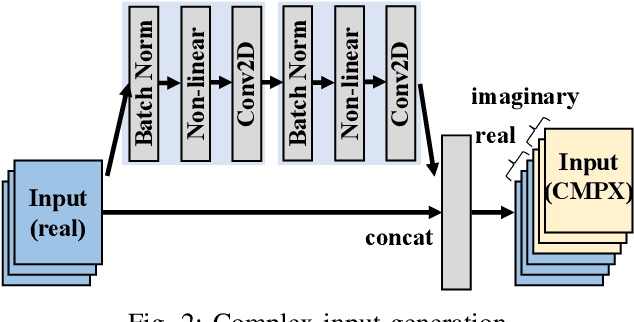
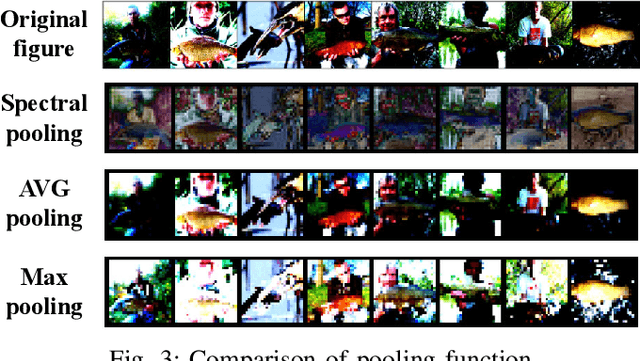
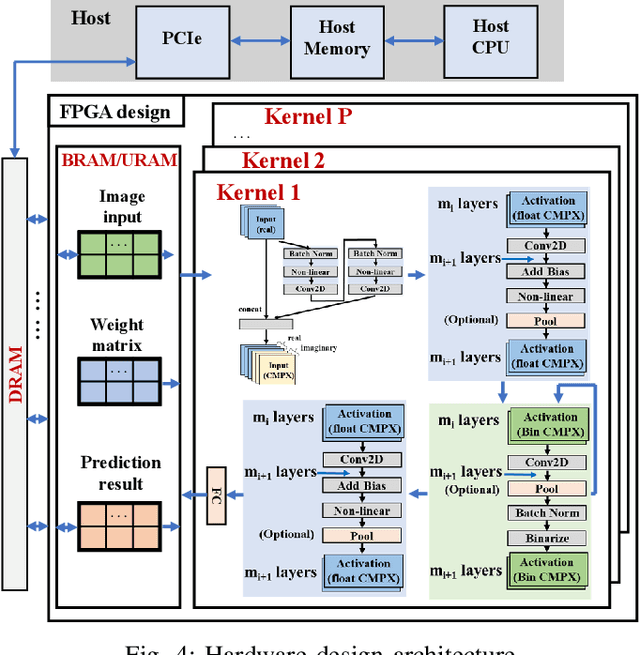
Abstract:Being able to learn from complex data with phase information is imperative for many signal processing applications. Today' s real-valued deep neural networks (DNNs) have shown efficiency in latent information analysis but fall short when applied to the complex domain. Deep complex networks (DCN), in contrast, can learn from complex data, but have high computational costs; therefore, they cannot satisfy the instant decision-making requirements of many deployable systems dealing with short observations or short signal bursts. Recent, Binarized Complex Neural Network (BCNN), which integrates DCNs with binarized neural networks (BNN), shows great potential in classifying complex data in real-time. In this paper, we propose a structural pruning based accelerator of BCNN, which is able to provide more than 5000 frames/s inference throughput on edge devices. The high performance comes from both the algorithm and hardware sides. On the algorithm side, we conduct structural pruning to the original BCNN models and obtain 20 $\times$ pruning rates with negligible accuracy loss; on the hardware side, we propose a novel 2D convolution operation accelerator for the binary complex neural network. Experimental results show that the proposed design works with over 90% utilization and is able to achieve the inference throughput of 5882 frames/s and 4938 frames/s for complex NIN-Net and ResNet-18 using CIFAR-10 dataset and Alveo U280 Board.
 Add to Chrome
Add to Chrome Add to Firefox
Add to Firefox Add to Edge
Add to Edge